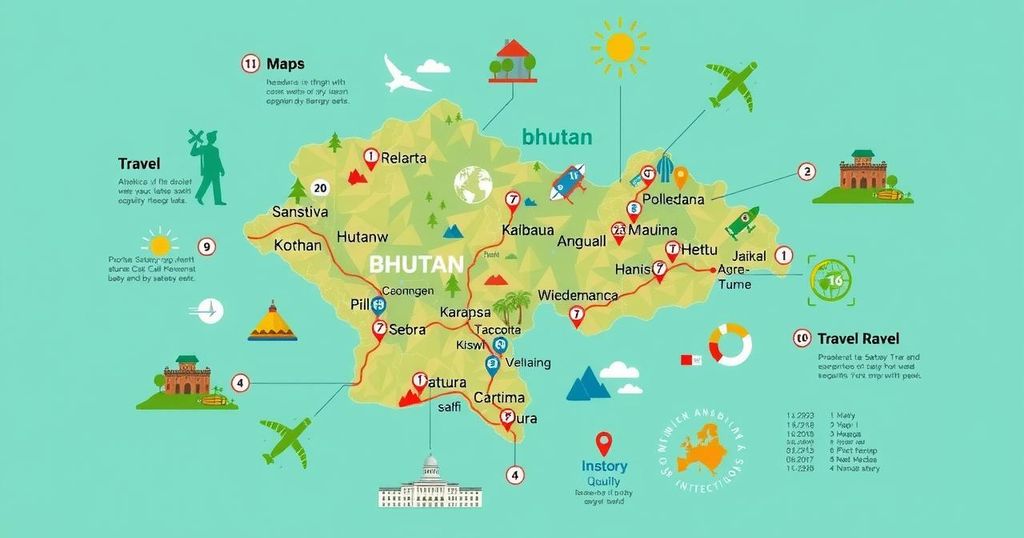Understanding Bhutan’s Inclusion on the U.S. Travel Ban List
Bhutan is on the U.S. travel ban list due to increased visa violations. The list categorizes countries into Red, Orange, and Yellow based on travel restrictions. Bhutan’s standing is a result of national security concerns and irregular migration patterns. The ban may strain U.S.-Bhutan relations significantly.
Bhutan and Afghanistan are included in the United States’ draft travel ban list, while Pakistan is categorized with limited travel restrictions. The United States has noted a significant 37% increase in visa violations among Bhutanese citizens, which has contributed to Bhutan’s current designation. The proposed measures are part of a larger strategy that has identified a total of 43 countries, with varying degrees of restrictions, devised by the Trump administration.
The travel ban categorizes countries into Red, Orange, and Yellow lists. The Red list denotes nations whose citizens, including Afghanistan and Bhutan, will be barred from entry. The Orange list, which includes ten countries such as Pakistan and Myanmar, allows for limited travel but requires stringent visa processes. The Yellow list comprises nations that are granted a period to rectify identified deficiencies to avoid stricter measures.
Bhutan’s inclusion on the travel ban list arises from purported national security issues and a rise in irregular migration patterns among its citizens. The Department of Homeland Security (DHS) has reported a significant increase in Bhutanese visa violations within the past year, leading to increased scrutiny of Bhutanese travelers and challenges faced by those currently in the United States.
This travel ban will necessitate longer visa processing times and could lead to outright denials for Bhutanese citizens seeking U.S. entry. This shift may create friction in U.S.-Bhutan relations, which have otherwise remained stable. Bhutan’s Ministry of Foreign Affairs has called for a reevaluation of the ban, asserting that its citizens do not pose significant threats to U.S. security.
The implications of the travel ban for individuals remain unclear, particularly regarding those holding existing visas. Questions persist about whether visas would be annulled or whether exemptions would be made for permanent residents and refugees. The complex dynamics of U.S. foreign policy continue to influence international relations, as seen in the cases of other countries on the travel ban lists.
Historical context strengthens the understanding of this travel ban initiative, as it recalls earlier travel restrictions put forth by the Trump administration, commonly known as the “Muslim Travel Ban,” which faced substantial legal challenges. Many of the countries affected correlate with previous administrations’ focus on combating perceived terrorist threats. Changes in leadership also reflect transitions in policies regarding immigration and national security, emphasizing the ongoing debate within U.S. foreign policy.
In summary, Bhutan’s placement on the U.S. travel ban list stems from national security concerns and a rise in visa violations among its citizens. This decision reflects a broader strategy categorizing numerous countries with varying degrees of travel restrictions. The implications for Bhutanese citizens seeking to enter the U.S. could severely strain diplomatic relations and complicate their immigration status. The historical context highlights the challenges associated with evolving U.S. travel policies, which continue to adapt under different administrations.
Original Source: www.news18.com




Post Comment